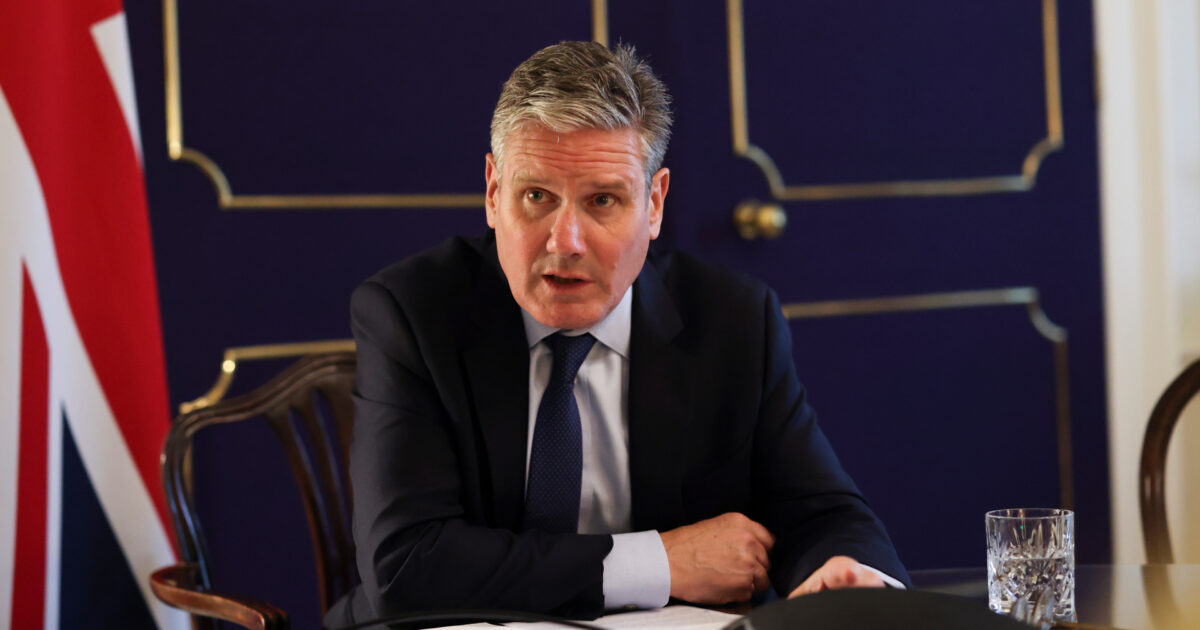
In light of the mounting concerns that Iran will retaliate against Israel over the execution of Hamas leader Ismail Haniyeh, the Prime Minister expresses his “deeply concerned” feelings to President Masoud Pezeshkian while expressing his concern.
Iran’s president stated that revenge against Israel “is a right” during a rare phone discussion with Sir Keir Starmer. This conversation took place as part of international attempts to de-escalate tensions in the Middle East.
The Iranian government’s official news agency, IRNA, stated that President Masoud Pezeshkian conveyed to the Prime Minister that a severe response to “an aggressor is a right of nations and a solution for stopping crimes and aggression.”
According to the article, Mr. Pezeshkian, who took office at the end of July, acknowledged that the Western world’s silence over the “unprecedented inhumane crime” that occurred in Gaza and Israeli attacks that occurred elsewhere in the Middle East was “irresponsible” and encouraged Israel to put regional and global security in danger.
This came after the United Kingdom, United States of America, France, and Germany released a joint statement urging Iran and its allies to “stand down its ongoing threats of a military attack against Israel.” The talk between the two leaders took place over the phone for thirty minutes on Monday evening.
Because of the execution of Hamas leader Ismail Haniyeh in the country, there is a rising fear that Iran may retaliate against Israel. As a result, the United States has ordered the deployment of a guided missile submarine to the Middle East.

Sir Keir expressed his “deep concern for the situation” and urged all parties involved to “de-escalate and avoid further regional confrontation” during his contact with Mr. Pezeshkian, as stated in a readout of the conversation that was obtained from Downing Street.
In addition to this, the Prime Minister stated that there was a “serious risk of miscalculation, and now was the time for calm and careful consideration.” He also urged Iran to “refrain from attacking Israel” and stated that “war was not in anyone’s interests.”
The following is an excerpt from the readout: “The Prime Minister reaffirmed his dedication to restoring an immediate ceasefire, freeing all hostages, and increasing the amount of humanitarian aid that is provided to Gaza.”
“He added that the focus should be on diplomatic negotiations to achieve those outcomes.”
Both leaders reached a consensus that “constructive dialogue was in both countries’ interests” when Sir Keir brought up the issue of foreign captives being held in Iran.
“The prime minister said that could only be furthered if Iran ceased its destabilising actions, including threats against individuals in the UK, and did not further aid Russia’s invasion of Ukraine,” the British government reported.
 ‘Iran wants to see a military effect”Iran wants to see a military effect’
‘Iran wants to see a military effect”Iran wants to see a military effect’
Call’very unusual occurrence’
It was a “very rare occurrence” for a British prime minister to speak with an Iranian leader, and it “shows the value” of having a British embassy in Tehran, which few countries, including the United States, do.
Sir Keir was able to convey the idea that Western leaders are using “the carrot… to bring Iran down from the edge” during the call, according to Bunkall.
That’s because “look, if we can try and push forward with a ceasefire deal and ceasefire talks are due to take place on Thursday, then anything that you do in between that, or even after that, runs the risk of collapsing those talks,” according to him.
In the previous joint statement, which also included Italy, the world leaders stated that there was “no further time to lose” in achieving a truce and releasing the remaining hostages in Gaza.
The statement continued: “We emphasised our solidarity for Israel’s defence against Iranian aggression and strikes by Iran-backed terrorist groups.
“We called on Iran to stand down its ongoing threats of a military attack against Israel and discussed the serious consequences for regional security should such an attack take place.”
On Friday, Iran’s Revolutionary Guards launched military training in Kermanshah, a western region near the Iraqi border.
Iran reported that Hamas’ political head, Ismail Haniyeh, was “assassinated” in Tehran on July 31.
Israel has never claimed nor denied involvement in Mr. Haniyeh’s death.
An Israeli government spokesman called it a “ring of terror armies” when asked about probable reprisals by Iran or Hezbollah or an escalation in the regional conflict.
David Mencer told Sky News that “this Iranian axis of evil has formed a stranglehold against Israel.”
He went on to say, “Hezbollah in Lebanon, Hamas in Gaza, the Houthis in Yemen… Israel will exact a heavy price for any aggression against us in any arena.”
needs”We’ve made it clear that we’ll always put our first hand out to bring peace to any partner; we want peace within Iran’s people, but this regime, this fascist, Islamist regime that is in control in Tehran, needs to understand that our long arm will reach anyone who causes our people harm.”